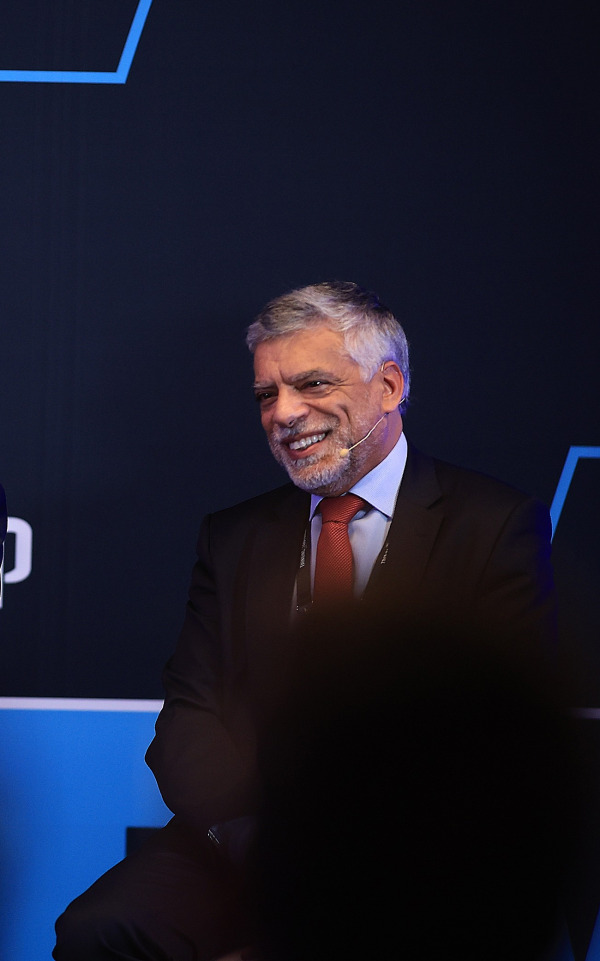Better tax conditions for football discussed at the Thinking Football Summit

Better tax conditions for football discussed at the Thinking Football Summit
Armindo Monteiro, Ricardo Costa, and Mauro Xavier discussed legislative changes they believe are crucial for enhancing the competitiveness of Portuguese football.
On the first day of the Thinking Football Summit 2024, the Academy stage hosted a panel titled ‘Strengthening the Recognition of Professional Football in the Areas of Sport, Economy, and Finance.’ The panel featured Armindo Monteiro, President of the Portuguese Business Confederation, Ricardo Costa, CEO of the Bernardo da Costa Group, and Mauro Xavier, a business manager. The discussion was moderated by journalist José Carlos Lourinho.
In a conversation highlighting Portugal's strong performance in the football industry, Armindo Monteiro emphasized two key changes he considers essential for maintaining and boosting the sector's international competitiveness. “It’s important to work in a context of collective efficiency, which requires a strong league and an organization that fosters collaboration. There are measures to support this, and two of them should be included in the State Budget. Liga Portugal is part of the CIP, and we find it hard to understand why a cultural activity like entertainment is taxed at 6% VAT, while football is taxed at 23%. We are asking for equal treatment,” he said, addressing what he sees as an excessive tax burden on football in Portugal.
“We have very high taxes—rich people's taxes in a poor country—and football suffers because of it. Salaries at the highest tax rates are taxed as though they belong to multimillionaires, and that’s just not sustainable. A large portion of players' earnings is taken away, and they want to know exactly how much they’re making. In the end, what counts is what the club pays them net. That’s where we lose our competitiveness. We had a policy to encourage players to return to the country, and even that has ended,” Monteiro explained. He also discussed the importance of professionalizing the football industry, citing Pedro Proença, President of Liga Portugal, as an example.
“Economic rationality must prevail, with stakeholders acting as rational managers. You can’t bring the same emotions from the stands into the boardroom. Rationality must be objective. The projects surrounding clubs must become more entrepreneurial to compete globally. We participate in European competitions where clubs abroad are becoming increasingly professionalized. What about here? Do we have good managers? Yes. Are they well-trained? Yes, and I’d like to single out the President of Liga Portugal. In addition to leading the league, he has experience in consulting, which equips him with the organizational efficiency and rational thinking needed beyond the emotional aspects of the game,” he said.
Ricardo Costa echoed these sentiments, stressing that it’s long overdue for decision-makers to view football as an industry. “There are many areas that need correction, like VAT and personal income tax. Several proposals have been made in the context of the economy and business, and football must increasingly be seen as a business. The big issue for many years was treating football as a passion while ignoring the fact that it is, in fact, a business,” he began, addressing VAT and IRS concerns.
“It’s a mistake to separate football from the reality of the country. Businesses in Portugal face many challenges, and the high tax burden they deal with is also applied to football. The tax burden on salaries is incredibly high, making it difficult for companies to attract talent, and football is no exception. We’re not just talking about multimillion-dollar salaries. I’ve seen firsthand how clubs struggle to attract players and prevent them from leaving for other countries,” he added, making an appeal to the relevant authorities. “The government, the State Budget, the Ministry of Finance, and the Ministry of the Economy must foster a favorable environment for the football industry to thrive, while still addressing the broader economic challenges businesses face in Portugal,” he concluded.
Mauro Xavier began by highlighting football’s role in promoting Portugal internationally. “We need to consider both the similarities and differences between industries. Few industries place Portugal in the global top 10, let alone the top 5 in Europe,” he began, echoing the tax concerns of his fellow panelists.
“There are four or five measures that the State Budget, the League, and the Federation need to start negotiating on behalf of the clubs. Going to the theater has a 6% VAT, while attending a football match has a 23% VAT. I just can’t understand it. It’s the only cultural activity taxed at that rate. The Competition Authority, through the government, doesn’t allow media operators to bid against each other for television rights, and this is harmful. Then, there’s the issue of attracting talent. In Italy, the tax ceiling is capped at 200,000 euros, while in Portugal, players like Di María pay two million in taxes. When players are sold, they’re taxed less in Portugal. I believe the upcoming budget should include some tax and competition reforms to inject new life into one of Portugal’s most impactful industries,” Xavier concluded.
News
Historic: Women's football clubs surpass €100 Million in revenue
For the first time ever, the combined revenue of top women’s football clubs in key markets has exceeded ...
How to succeed in the Sports Industry? Four tips from Rafael Nadal
Rafael Nadal is renowned for his excellence, determination, and relentless pursuit of victory. With 22 Grand Slam ...
Al-Nassr signs Esports player for record-breaking fee
João Afonso, world champion in FIFA and EA Sports FC, known as "Jafonso," has made history with the most ...
Is Netflix prepared to stream major sporting events? Insights from the Jake Paul vs. Mike Tyson fight
The live broadcast of the Jake Paul vs. Mike Tyson boxing match on Netflix marked a significant step for the platform, ...
European Leagues and FIFPro vs. FIFA: Lawyer Gonçalo Almeida explains the complaint to the European Commission
The European Leagues, chaired by Pedro Proença, along with FIFPro, has filed a complaint with the European ...
